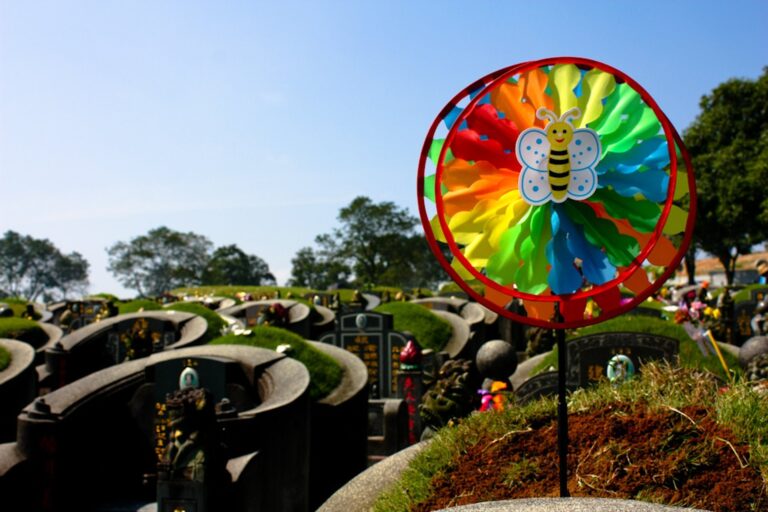As we anticipate the arrival of Ching Ming Festival 2025, a time-honored tradition deeply rooted in Chinese culture, there is a sense of reverence and celebration in the air. This ancient festival, also known as Tomb-Sweeping Day, holds great significance as families come together to pay respects to their ancestors, clean their gravesites, and honor their heritage. With each passing year, the Ching Ming Festival serves as a poignant reminder of the importance of filial piety and ancestral veneration. Join us as we delve into the rich history and customs surrounding this cherished occasion, gaining a deeper understanding of the values and traditions that continue to shape our cultural identity.
Introduction to Ching Ming Festival 2025
The Ching Ming Festival, also known as Tomb-Sweeping Day, is a traditional Chinese festival that takes place every year to honor ancestors. In 2025, the festival will be celebrated on April 4th. This day is a time for families to visit the graves of their ancestors, clean the tombs, offer food, burn incense, and pay their respects.
History and Significance
The Ching Ming Festival dates back over 2500 years to the Zhou Dynasty and holds great cultural significance in Chinese tradition. It is a time to remember and show respect to one’s ancestors by performing various rituals and ceremonies.
Celebration Rituals
During the Ching Ming Festival, families gather at ancestral tombs, sweep away debris, light incense sticks, and make offerings of food and paper money. This ensures the ancestors’ spirits are cared for and can bring blessings to the living.
- Tomb-Sweeping: Families clean the gravesites and offer prayers.
- Ancestral Offerings: Food, tea, and other items are placed as offerings.
- Kite Flying: Some people fly kites to symbolize good luck and send wishes to the heavens.

History and Origins of Ching Ming Festival
The Ching Ming Festival, also known as Tomb-Sweeping Day, is a traditional Chinese festival that usually falls on April 4th or 5th. This festival has a history of over 2500 years and is a time-honored custom to pay respects to ancestors and deceased loved ones by cleaning their tombs and making offerings. It is a significant occasion for Chinese communities worldwide, including those celebrating Ching Ming Festival 2025.
Origin of Ching Ming Festival
The origin of Ching Ming Festival can be traced back to the Zhou Dynasty (1046-256 BC) in China. It was initially a day for ancestor worship, where families would visit the tombs of their ancestors to sweep away debris, make offerings of food and incense, and pay their respects. The festival’s customs have evolved over the centuries, but the essence of honoring one’s ancestors remains central.
Evolution of Ching Ming Traditions
Over time, Ching Ming Festival has evolved to incorporate various cultural practices and rituals. Families not only clean the tombs but also offer specific symbolic foods like Qingming rice balls and peach blossom porridge. The festival has also become an opportunity for family gatherings and outings, fostering togetherness and cultural continuity.
Traditions Associated with Ching Ming Festival
The Ching Ming Festival 2025 is a time-honored tradition in Chinese culture that pays respects to ancestors by visiting their gravesites to clean and offer prayers. This festival, also known as Tomb Sweeping Day, falls on the 4th or 5th of April each year.
Cleaning Ancestral Graves
One of the key traditions during the Ching Ming Festival is the practice of cleaning the graves of ancestors. Families gather at burial sites to sweep away debris, pull out weeds, and tidy up the surroundings as a sign of respect.
Offering Incense and Food
During this solemn occasion, it is customary to offer incense and food to honor departed loved ones. Families burn incense sticks as a way to communicate with spirits and present offerings such as fruit, tea, and even the deceased’s favorite food.
Flying Kites and Picnicking
Aside from paying respects at graves, the Ching Ming Festival is also a day for families to bond and enjoy outdoor activities. One popular pastime is flying kites, symbolizing the release of bad luck. Many families also have picnics to celebrate the arrival of spring.
Celebration and Activities during Ching Ming Festival 2025
The Ching Ming Festival, also known as the Tomb-Sweeping Day, is a traditional Chinese festival observed by millions of people worldwide to honor their ancestors by paying respects at their gravesites. In 2025, this solemn occasion will be commemorated with traditional rituals and activities that date back centuries.
Grave Sweeping
One of the key rituals during the Ching Ming Festival is grave sweeping. Families visit the burial grounds of their ancestors to clean the graves, offer fresh flowers, light incense sticks, and make offerings of food and wine.
This act of remembrance is a way to show respect and gratitude to those who came before them.
Picnics and Outdoor Activities
Many families use the Ching Ming Festival as an opportunity to gather outdoors and enjoy a picnic among the beautiful spring blossoms. It’s a time for families to bond, share stories, and celebrate the lives of their ancestors.
- Some popular activities include flying kites, playing traditional games, and indulging in festive foods.
Significance of Ching Ming Festival in Modern Times
Ching Ming Festival 2025 holds immense significance in modern times as it continues to be an integral part of Chinese culture and tradition. Also known as Tomb-Sweeping Day, this festival is a time-honored practice where families pay respects to their ancestors by cleaning their graves, making offerings, and burning incense.
Preserving Ancestral Heritage
During Ching Ming Festival in 2025, families visit ancestral graves, offering food, flowers, and burning incense as a way to honor their ancestors. This act is believed to bring good fortune and blessings to the living generation.
Modern Observance of Ching Ming
In modern times, Ching Ming Festival 2025 is also observed through digital means. Many people offer virtual tributes online, utilizing social media platforms to remember and honor their departed loved ones.
Frequently Asked Questions
-
- What is Ching Ming Festival?
- Ching Ming Festival, also known as Qingming or Tomb-Sweeping Day, is a traditional Chinese festival honoring ancestors and remembering loved ones who have passed away.
-
- When is Ching Ming Festival 2025?
- Ching Ming Festival 2025 will be celebrated on April 4th.
-
- How is Ching Ming Festival celebrated?
- Ching Ming Festival is typically commemorated by visiting ancestral gravesites, cleaning and sweeping the graves, making offerings of food and burning incense, as well as participating in various cultural activities and rituals.
-
- What are some traditional customs associated with Ching Ming Festival?
- Some traditional customs include offering paper offerings, cleaning tombstones, flying kites, and eating Qingming treats such as peach blossom porridge.
-
- Why is it important to embrace traditions like Ching Ming Festival?
- Embracing traditions like Ching Ming Festival helps us connect with our roots, honor the past, and maintain cultural heritage and values for future generations.
Celebrating Tradition and Ancestral Roots: Ching Ming Festival 2025
As we conclude our journey into the Ching Ming Festival 2025, we are left with a profound appreciation for the rich cultural heritage and traditions that are intricately woven into this auspicious event. Through honoring our ancestors, connecting with nature, and fostering family bonds, we have experienced the timeless beauty and significance of this festival.
By embracing the customs and rituals passed down through generations, we not only pay homage to our roots but also find solace in the continuity of life. The Ching Ming Festival serves as a reminder to cherish our past, live in the present, and pave the way for a meaningful future.
May the essence of tradition and the spirit of familial love continue to guide us beyond this festival, nurturing our souls with warmth and wisdom throughout the year.




